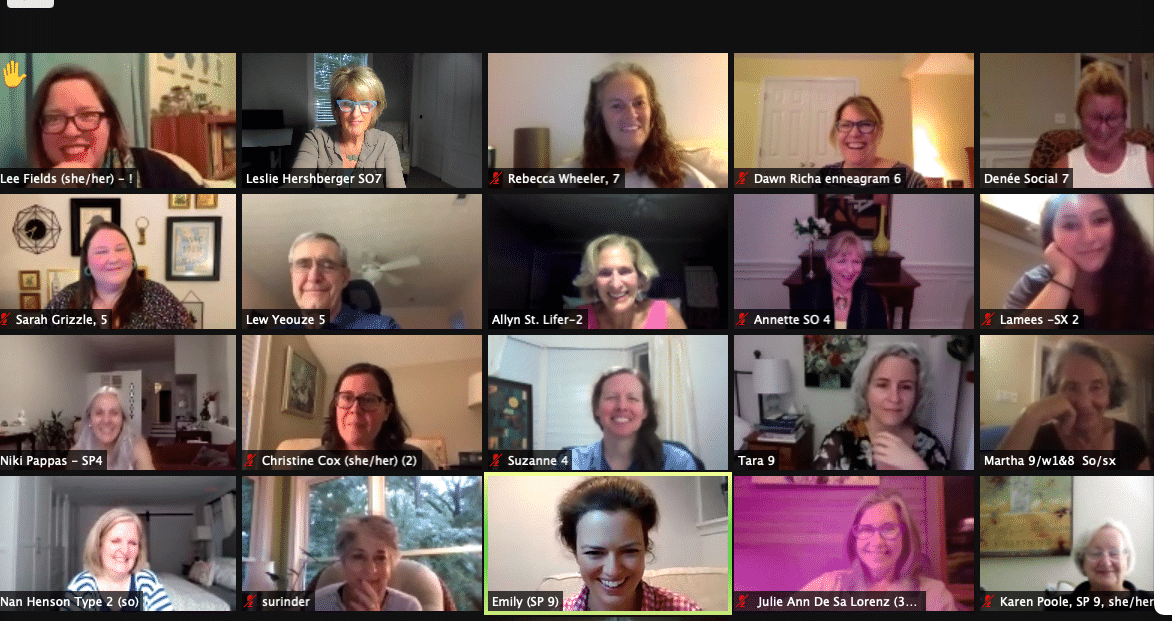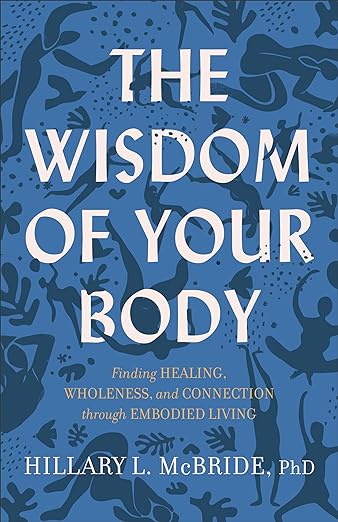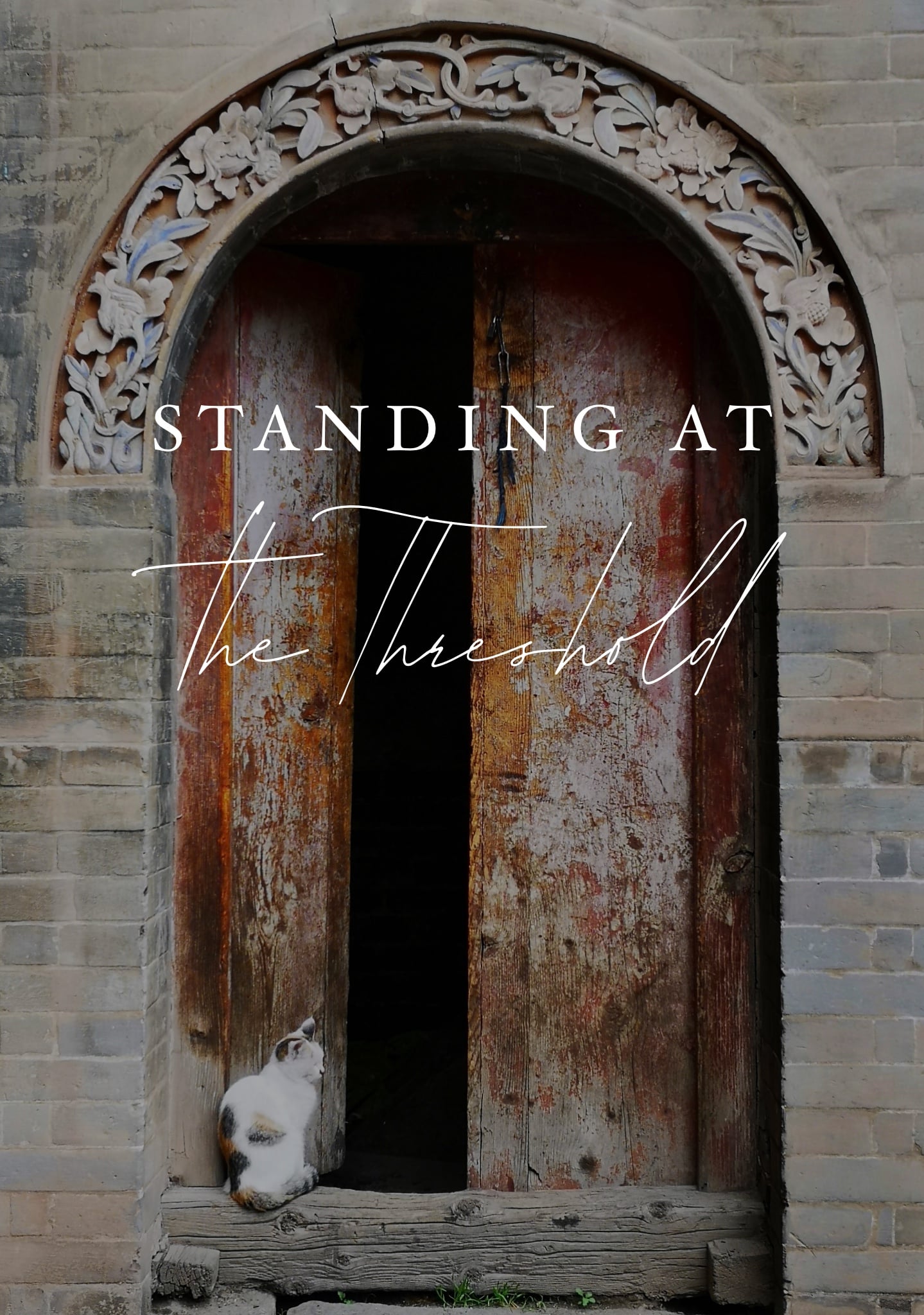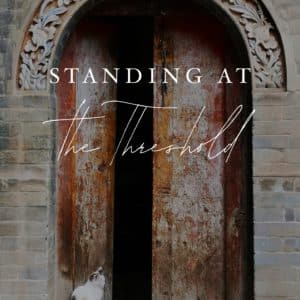Description
Our bodies are telling the stories we have avoided our entire lives or forgotten how to hear. Talking about our feelings happens mostly in the head. Sometimes our inability to feel our feelings (the messages that precede the alarm bells) means that our bodies have to scream in order to get some attention….
If I could sum up all my years of clinical training and research in one statement, it would be this: We heal when we can be with what we feel.
Dr. Hillary McBride: The Wisdom of Your Body
Leslie Hershberger and Sarah Pritts are eager to invite you to a 2nd Thresholds second half of life class beginning April 4th.
We were taken by surprise by our inaugural class selling out! We were left scrambling for ways to make space and we had a large, international group.
With that said, we listened to your feedback and chose to do one online class and one in person class. We reduced the size of the classes to 15 people per cohort.
Please register early for this ONLINE COHORT if you’re interested as we are committed to honoring this cap in order to give you a more personalized experience.
Class dates:
- April 4 (Zoom session with both cohorts: Session will be recorded)
- April 11 (Zoom)
- April 25 (Zoom)
- May 9 (Zoom)
- May 23 (Zoom)
- June 6 (Zoom)
Time for all sessions: 9:45 AM ET-12:15 PM ET
Cost: $299
NO ONE is turned away because of financial limitations.
Please contact Sue Jones if you need a payment plan or reduced rate.
About this Zoom Class with Leslie and Sarah.
For our second Thresholds 2nd Half of Life class, we’ve chosen the topic of Coming Home to Ourselves through the Practice of Embodiment, a relatively new frontier in the world of emotional self-awareness, relationship awareness and spiritual insight.
In this 2nd half, our bodies demand much of our attention. Yet, the focus is often on external appearances, forcing us to comply to cultural norms, ignoring or amplifying our body’s signals or dealing with aches, pains, sleep issues and illnesses.
There is another way to be more present in this period of collective upheaval.
As we move through this extended time of change and uncertainty, it’s easy to feel thrown off-center, anxious, or confused about this time in your life.
You’re not alone in feeling this way. When we’re under this much individual and collective pressure, our old conditioning kicks, undermining our ability to move forward and/or stay grounded and present.
Yet within each of us, there is a capacity for resilience and aliveness.
 Leslie and Sarah invite you to participate in a new Thresholds 6-week class that explores practices of Embodiment.
Leslie and Sarah invite you to participate in a new Thresholds 6-week class that explores practices of Embodiment.
Embodiment is a relatively new frontier in the world of emotional self-awareness, relationship awareness and spiritual insight.
Embodiment practices were the core practices that supported both of us through challenging thresholds.
From Leslie:
Before 2006, I’d never heard of “embodiment” and tended to ignore this newly emerging modality which was originally designed to support people who’d experienced trauma. I didn’t understand it until a friend and fellow Enneagram teacher brought it to our Enneagram Learning Community.
 Embodiment integrates mindfulness, spiritual presence, learning to ground ourselves under pressure and work with deep conditioned tendencies that live in our bodies and cause undue stress as we age.
Embodiment integrates mindfulness, spiritual presence, learning to ground ourselves under pressure and work with deep conditioned tendencies that live in our bodies and cause undue stress as we age.
It had such a significant impact that I completed 5 different trainings and/or certifications with leaders in the field of embodiment and collective, relational healing.
When I first taught embodiment to our local groups, one person said:
“I had no idea what embodiment was and it ended up being the most powerful and practical class you’ve taught.”
What to expect:
In this class, we will discuss some of the theory of embodiment, but our primary focus will be on practicing together so we can embody our values and what we care about at this time in our lives.
Over the course of 6 weeks, participants will have both large group and small group experiences, with an emphasis on small group practice.
In 5 small group sessions, you will learn:
- Your conditioned tendencies: the default reactions, habits and reactions you developed over time that emerged out of family of origin, ancestral patterns, cultural expectations. They’re not negative or positive: they’re default responses that tend to amplify in the face of current challenges.
- If you know your Enneagram style, you will discover the way your Enneagram patterns are embodied: With that said, knowing your Enneagram style is helpful, but not required.
- A variety of styles of practice and meditation that help you come home to yourselfactivate your human, inner resilience. This will provide you with a toolbox of practices, so that, when facing the challenges of everyday life, you will have techniques to stay present in a wide range of situations.
- How embodiment practice can support you in your current threshold of life which can include:
- the loss of a friend, parent, sibling or partner
- a geographic move
- pervasive, unexplainable ambivalence in your relationship
- dissatisfaction and disappointment at work
- challenges/worries with adult children
- an illness or accident
- loneliness or aloneness
- all the changes that come with age
- an experience that upended your life

Dr. Hillary McBride
Our reference text:
The Wisdom of Your Body by Hillary McBride, PhD.
We will not require you to read the whole book. Rather, we will suggest relevant excerpts and will practice some of Dr. McBride’s techniques together.
Leslie and Sarah have both been teaching embodied practices for years, so they will also teach their own styles of supportive embodied practices.
Dr. McBride’s work relies heavily on the work of Bessel Van der Kolk, who is a psychiatrist who works with patients who have experienced trauma.
Dr. Van der Kolk emphasizes the importance and the hope of connecting with our bodies. He says, “Angry people live in angry bodies. Being frightened means that you are always on guard. In order to change, people need to become aware of their sensations and the way that their bodies interact with the world around them.”
Embodied practices can help us learn our bodies.
Rather than focusing on people with a history of trauma, however, Dr. McBride has written a book that is more broadly applicable and gives practical tips for everyone to cultivate more embodiment.
She says that “embodiment [is] feeling a sense of positive connection or being at one with our body. We feel power and agency in our physicality, and we sense that we are not just observing our bodies from the outside but living through them from the inside out.”
We hope that you can join us for this brand-new class, allowing us to explore our relationships with ourselves and others along with cultivating the practice of spiritual presence through embodiment theory and practice.


